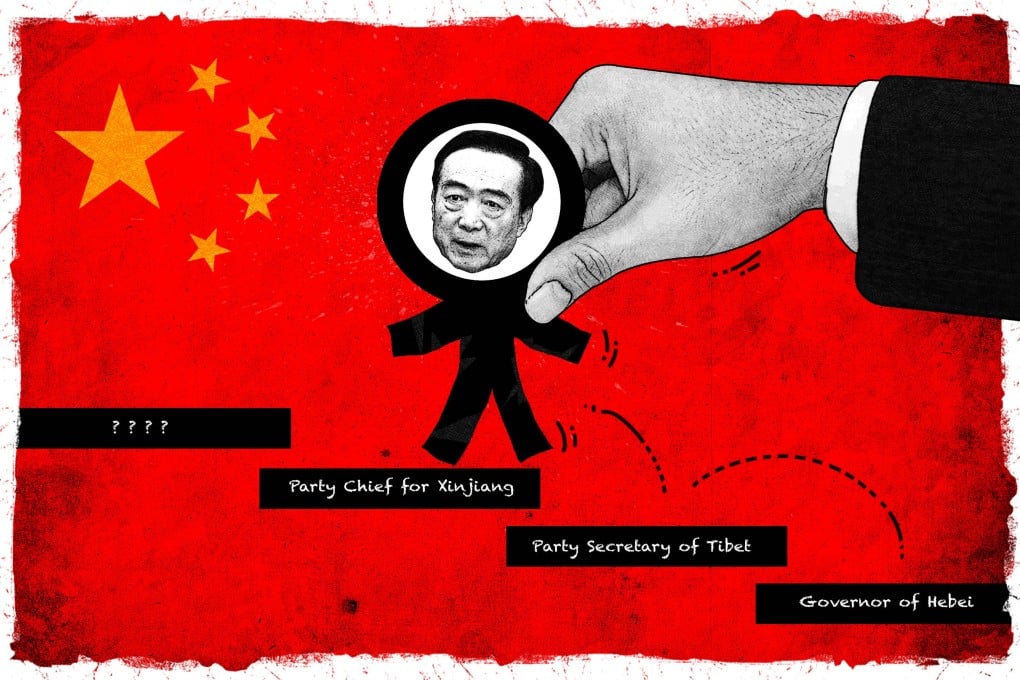From Tibet to Xinjiang, Beijing’s man for restive regions Chen Quanguo is the prime target of US sanctions
- He is believed to have expanded the police force and network of internment camps where Muslim minorities are held in Xinjiang
- Known for his strong-arm tactics – and lap swimming – his rise up the ranks looks set to continue

His agenda included chairing a study session on patriotism, a regular event for Beijing’s point man in suppressing what China calls a separatist and terrorist insurgency in the region bordering Pakistan and Afghanistan.
“[We] must continue an extensive campaign on legal education and anti-extremism, to guide cadres and people of all ethnic groups to further strengthen their patriotic awareness,” says the official statement of his comments at the meeting.
If Chen, 63, cares about the attention he gets in Washington, he doesn’t show it. As the Communist Party chief for Xinjiang he has faced criticism all year for being the architect of what the US, European Union and United Nations call a network of internment camps built to forcibly detain ethnic Muslim Uygur people in an attempt to wipe out their identity through systematic indoctrination.

Beijing doesn’t deny the camps exist, but rejects the US definition, calling them vocational training centres to contain religious extremism. China hasn’t given a figure for how many people have been through the camps but it has said it’s much lower than the 1 million estimate by the UN’s Committee on the Elimination of Racial Discrimination. The UN cited “credible reports” for its figure but didn’t name the sources. Independent researchers and human rights groups have made similar estimates, citing interviews with Uygurs, population numbers, and leaked government documents.